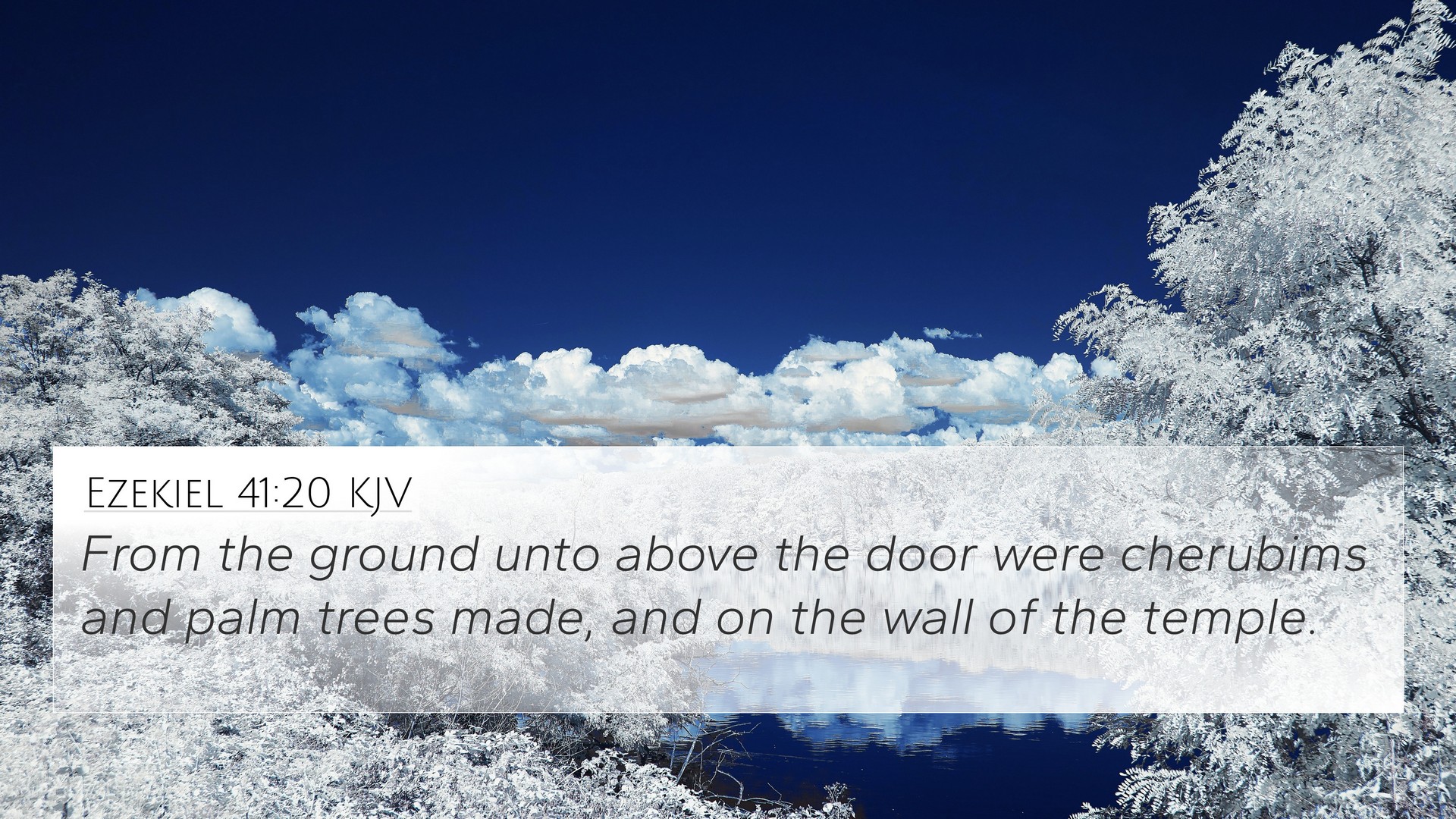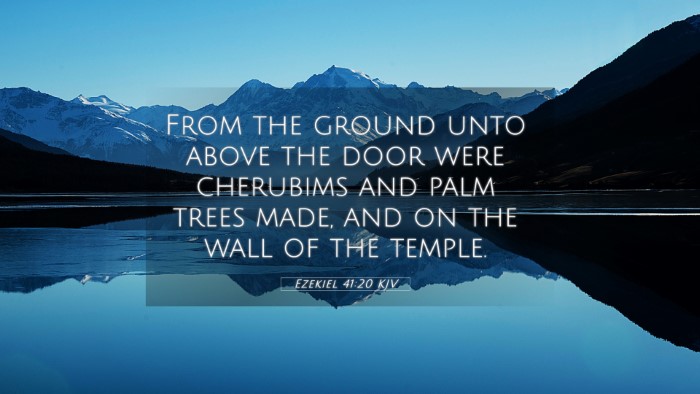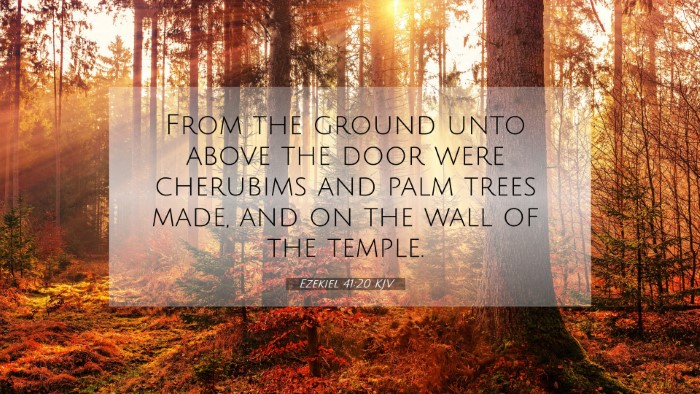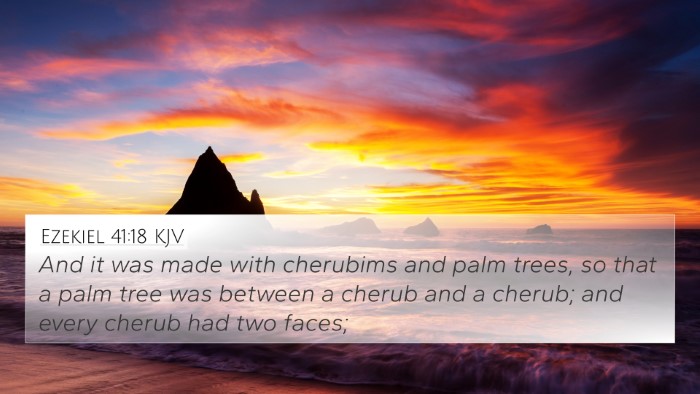Ezekiel 41:20 - Meaning and Interpretation
Bible Verse: Ezekiel 41:20 - "From the ground unto above the door were cherubims and palm trees made, and on the wall of the temple."
Summary of Ezekiel 41:20
Ezekiel 41:20 describes the intricate design elements of the temple, specifically the presence of cherubims and palm trees carved on the walls and above the doors. This verse highlights the beauty and sanctity of the temple, emphasizing the detailed artistry that reflected divine inspiration.
Commentary Insights
-
Matthew Henry:
Henry notes that the cherubims represent the guardianship of God's presence. The presence of palm trees signifies victory and peace, resonating with the nature of the eternal kingdom. Henry emphasizes the importance of these artistic features, suggesting they symbolize the intimacy and relationship between God and His people.
-
Albert Barnes:
Barnes focuses on the symbolism of cherubims in the context of God's holiness. He explains that these figures are representative of the celestial beings who serve God. The palm trees further enhance the imagery of a paradise temple, indicating the blessings and richness of a life dedicated to God.
-
Adam Clarke:
Clarke elaborates on the artistic portrayal of the temple’s architecture. He discusses how the palms and cherubims reflect the glory of God and the connection to creation. In Clarke's view, every detail serves a purpose, inviting the worshiper into a deeper understanding of God's majesty.
Thematic Connections to Other Bible Verses
This verse is deeply interconnected with several other scripture passages, shedding light on the theme of God's presence in relation to His temple:
- Exodus 25:18-20: Discusses the cherubim on the mercy seat, emphasizing their role in God’s dwelling among His people.
- 1 Kings 6:23-30: Details Solomon's temple construction, which also featured cherubim and intricate designs indicative of God's glory.
- Psalms 92:12-13: Compares the righteous to palm trees, indicating growth and flourishing in God's house.
- Isaiah 6:2: References seraphim, which like cherubim, surrounded God's throne, highlighting heavenly worship.
- Revelation 7:9: Describes a great multitude in heaven, linking to the ultimate temple where God dwells with His people.
- Hebrews 9:5: Mentions the cherubim of glory overshadowing the mercy seat, correlating with the themes found in Ezekiel.
- Matthew 21:12: Discusses Jesus entering the temple, evoking reflections on its sanctity and significance for worship.
Tools for Bible Cross-Referencing
Understanding the connections and thematic relevance of Bible verses can be greatly enhanced using various tools:
- Bible Concordance: A comprehensive guide to finding key words and their locations throughout the scriptures.
- Bible Reference Resources: Guides that help in locating and understanding scripture parallels.
- Bible Cross-Reference System: Methodologies for linking related verses across different books of the Bible.
- Cross-Referencing Bible Study Methods: Techniques for studying the interrelations of scripture.
How to Use Bible Cross-References
Effective use of Bible cross-references enhances understanding:
- Identifying Connections: Learn how specific verses relate across both Old and New Testaments.
- Dive Deeper: Explore how themes are developed throughout different scripts, such as Pauline epistles versus the Gospels.
- Thematic Studies: Investigate themes like grace, redemption, and love as seen across different contexts.
Conclusion
The intricate details of Ezekiel 41:20 are not just historical but carry profound spiritual significance, intertwining God's presence with the artistry of worship. By utilizing cross-referencing tools, we can deepen our understanding of scripture and cultivate a more meaningful relationship with God.
In summary, Ezekiel 41:20 provides a glimpse into the majesty of the temple and the thematic connections within the Bible underscore the continuity of God's message throughout history.



